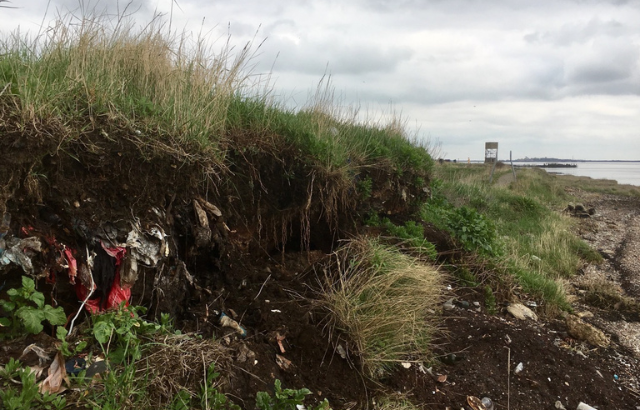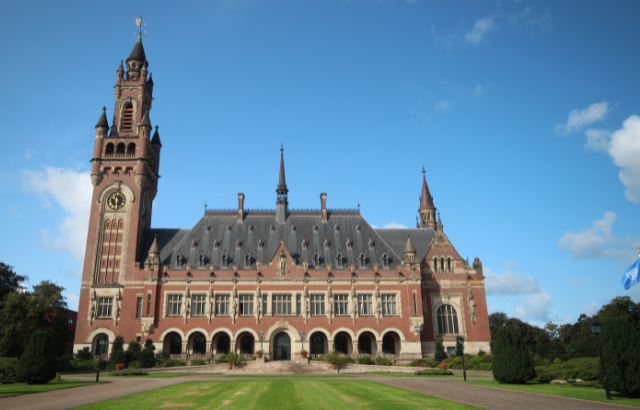Parliament faced unprecedented attacks throughout Brexit according to report co-authored by Queen Mary academics
The report, Parliament and Brexit, includes chapters written by Professor Tim Bale and Dr Daniel Gover from Queen Mary University of London’s School of Politics and International Relations.

Parliament and Brexit found that parliament faced unprecedented challenges during the Brexit process, many of which remain unresolved. It also explores key questions about how parliament adjusts to a post-Brexit context.
Parliament delivered
Academics find that throughout the Brexit process parliament, in spite of ferocious attacks on its legitimacy and processes from prime ministers, ministers, MPs, the media and the public, did its job.
With a minority government that lost the support of the House of Commons, parliament used its scrutiny procedures creatively to hold the government to account for its Brexit policies. However, it is doubtful whether Parliament will be able to exercise this level of scrutiny over the government during the future relationship negotiations.
The report notes that parliament has a unique place in the country’s political system: parliamentary sovereignty lies at the core of its constitution and both Commons and Lords remain central to the functioning of the country’s democracy.
The report also finds that parliament, as a complex representative body in a divided nation, ended up taking much of the flak for the resulting delay in completing the country’s withdrawal from the EU.
Cross-party collaboration less likely in the future
Professor Tim Bale wrote the chapter, Opposition Cooperation Then and Now whilst Dr Daniel Gover wrote a chapter titled Procedural Innovation.
Key findings from the report show that 180 Conservative MPs defied the whip on Brexit votes with 118 doing so on the first meaningful vote. Conflict may return on the Conservative benches if no trade deal looks likely as the transition period comes to an end.
The problem facing Labour MPs was reconciling their own Brexit preferences with those of their constituents. Only 10 of Labour’s 232 MPs in 2016 voted Leave. However approximately 148 of those constituencies saw a majority vote Leave. In 142 constituencies, the Labour MP voted Remain while the majority of constituents voted Leave.
The cross-party collaboration that took place between 2016 and 2019 is far less likely in future: incentives for inter-party cooperation are weaker than parties’ desire to seek individual partisan advantage.
Future challenges
The report also identifies a number of future challenges for parliament. Brexit implementation will still require a substantial amount of primary and secondary legislation – and the existing scrutiny procedures for secondary legislation may not be fit for purpose.
Parliament’s powers with regard to treaty scrutiny are currently inadequate: it needs to be given more powers to effectively scrutinise future trade deals.
The relationships between Westminster and the devolved administrations have also been seriously unsettled during the Brexit process. The report recommends that parliament and government should invest in strengthening these relationships.
The report also suggests that select committees are likely to be at the forefront of parliament’s ongoing Brexit work. However, in order to support the most effective possible scrutiny over the longer term, including accommodating scrutiny of policy areas currently governed at EU level, parliament may need to adapt its structures and procedures.
In the midst of the current Coronavirus crisis, these challenges and questions might no longer seem so pressing, but they will not go away.
Anand Menon, director of The UK in a Changing Europe, said: “The 2016-2019 period will go down as one the most bitterly fought battles in parliamentary history.
“Given the critical role the institution plays in our democracy it’s incumbent on MPs, and the media, to do what they can to restore public trust in parliament post-Brexit, through communicating its proper scrutiny role and enabling this to develop to meet the new challenges that lie ahead.”
More information:
The report is by The UK in a Changing Europe, UCL’s Constitution Unit and the University of Leicester’s Law School.
- Download the report
- Study Politics at Queen Mary
Related items

10 December 2024

10 December 2024
For media information, contact:
